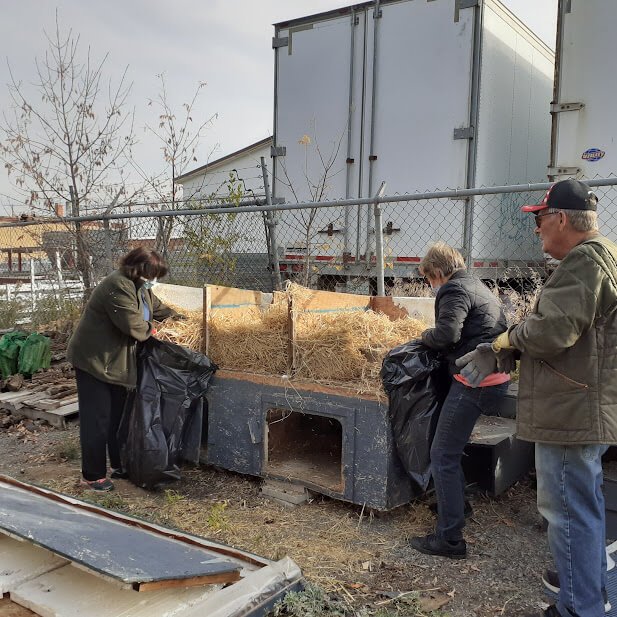
All About TNR and Community Cat Colonies
Regina Cat Rescue volunteers share the story of feral cats in Regina, Saskatchewan. Regina Cat Rescue maintains 30 feral cat colonies in the city and also provides support to Regina citizens who care for their own backyard colonies. The organization runs a Trap-Neuter-Return (TNR) program.
Trap-Neuter-Return, or "TNR," is the most humane and effective method for managing feral and stray cats. The cats, who typically live together in a group called a colony, are trapped, spayed or neutered and returned back to their colony where they are provided regular food and shelter.
Regina Cat Rescue (RCR) has established over thirty community cat colonies, with each one being visited by a volunteer every day of the year to supply fresh food and water and to check that everything is okay. The food and shelter stations are located with permission on private land.
There are several advantages to community cat colonies managed by a TNR program:
1.
By spaying and neutering, these colonies keep the number of community cats down instead of allowing them to continue reproducing out of control. In six years, one female cat and her kittens can produce over 26,000 cats!
Some of RCR's colonies have been operating for up to 35 years, with great success.
2.
Cats who are being fed and cared for roam less and are less of a bother to people living in the neighbourhood. Established colonies mean less territorial aggression, and the cats living in them will spray less (mark territory with urine) and have fewer of those loud catfights that can wake people up at night.
3.
In addition, having a maintained cat population will keep the number of rodents low in a neighbourhood. Even well-fed cats will still hunt mice. This is often one reason why people appreciate having a cat colony in their neighbourhood.
4.
The biggest advantage is the fact that we can reduce the suffering that community cats endure. Cats living on their own on the street suffer from hunger, thirst, and extreme cold. Often we see and hear of horrible situations that homeless cats are found in – either frozen under cars or found dead as a result of malnutrition and poor health. It is through no fault of their own that their pain and hardships continue to grow with their increasing population.
Feeding stray and feral cats without first trapping and sterilizing them is unfortunately not as good an idea as it first appears. While it makes us feel good to feed hungry animals, the better nutrition will only allow them to have larger litters when they reproduce – adding more cats to the same, difficult life on the street.
If you’ve noticed stray cats in your neighbourhood and would like to help them, see our resource about Feeding Stray Cats.
To see the impact one unsterilized female can make, read all about the Overpopulation Crisis.
See our Ideas to Offset Spay/Neuter Costs for ways to help.
Contact our Community Cat Team for more information on how to set up a managed community cat colony.
Unfortunately, the Regina Humane Society does not currently run a TNR program. Be aware that if a cat taken into their care is indeed feral, it will likely be euthanized.






